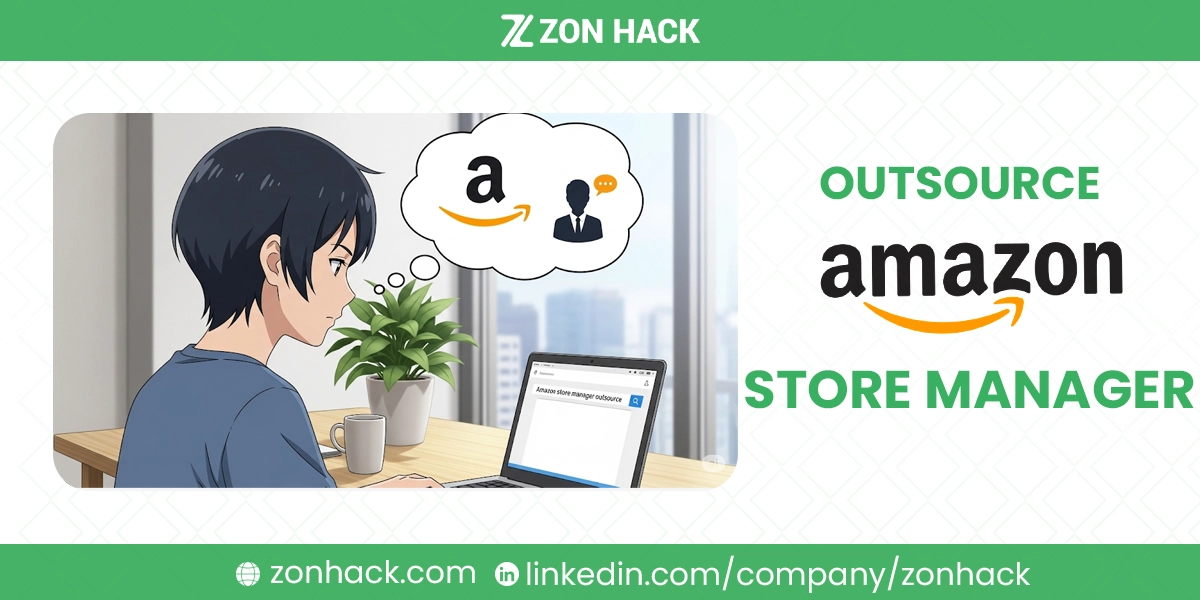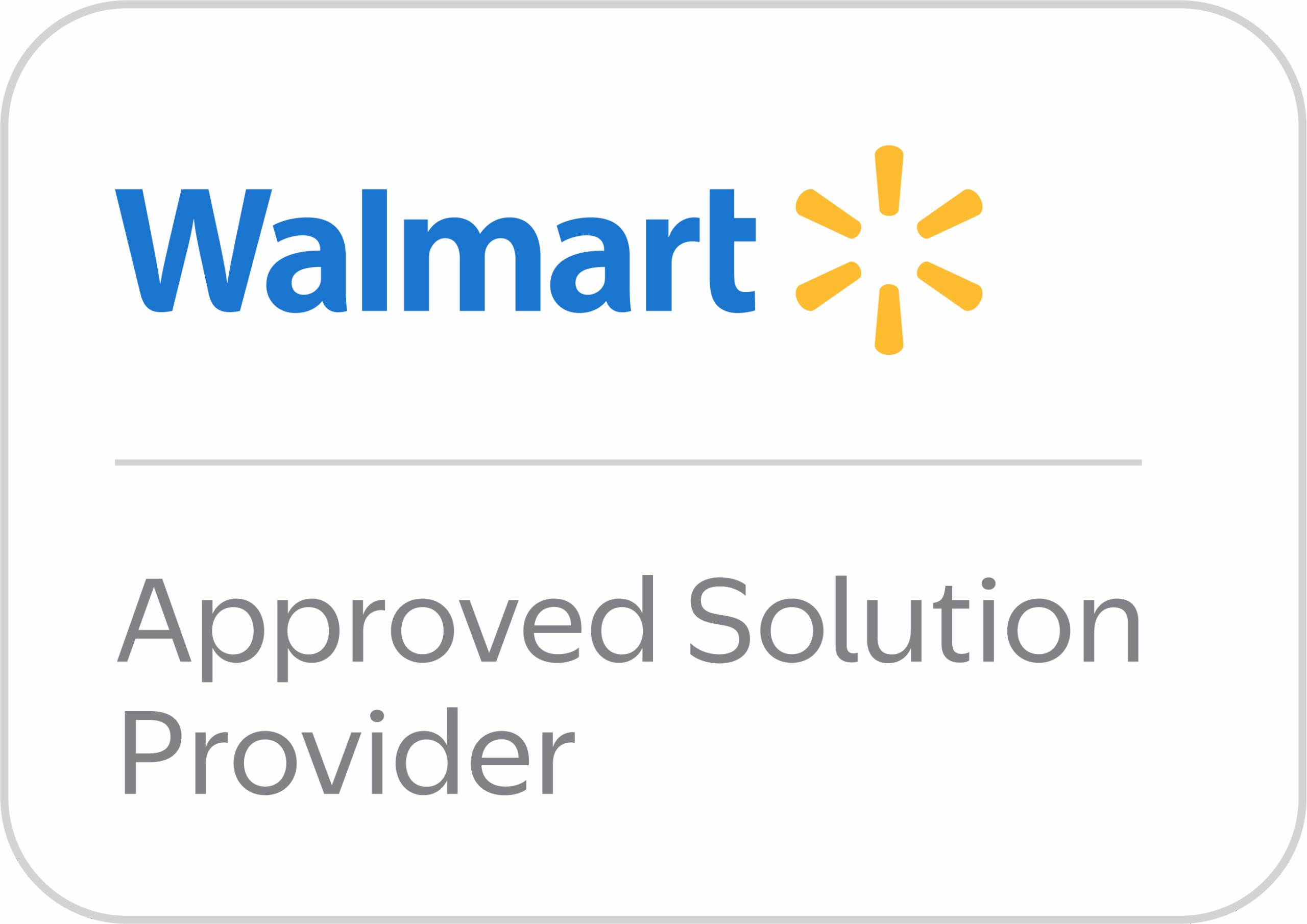Managing an Amazon store takes time, effort, and a serious understanding of how the platform works. But let’s face it—juggling everything from inventory to ads and customer service can burn anyone out. That’s where outsourcing an Amazon store manager becomes a game-changer. You get expert help without the stress of hiring full-time staff.
In this article, I’ll walk you through everything you need to know about outsourcing the right Amazon store manager—from what skills to look for, to how much it might cost, to the best platforms to hire from. Whether you run a small private-label shop or a fast-scaling brand, this guide will help you find the right person to take your store to the next level.
Skills to Look for in a Manager for Your Amazon Store
Alright, so you’re thinking of bringing in some help. But what kind of magic powers should this Amazon store manager possess? It’s not just about finding someone who knows Amazon; it’s about finding someone who knows your Amazon. I’m talking about a real pro who can take your store to the next level. Let’s get into the essential skills I always look for.
Sales and Performance Management
When it comes to sales, you want someone who’s not just sitting back and watching numbers, but actively making things happen. They should be a strategist, a detective, and a go-getter all rolled into one.
First off, they need to be masters at developing and implementing strategies to optimize product listings, increase visibility, and boost sales. Think about it: a great listing isn’t just a list of words; it’s a sales pitch, a magnet for customers! They should know their way around keywords, captivating descriptions, and eye-catching images. Secondly, they should monitor and analyze key performance metrics. We’re talking sales trends, where your traffic is coming from, how many people are actually buying (conversion rates), and what customers are saying. This helps them find hidden opportunities and fix what’s not working. Thirdly, they need to be able to set and achieve sales targets and other key performance indicators (KPIs). It’s about having clear goals and then crushing them! And lastly, they should be savvy with managing pricing strategies and promotional activities. Nobody wants to leave money on the table, right? They’ll know how to price competitively and run promotions that actually convert.
Product and Inventory Management
This is where the nuts and bolts of your store live. A good manager ensures your products are always looking their best and that you never run out of stock when customers are ready to buy.
They need to oversee all aspects of product listings. This means making sure everything is accurate, complete, and optimized for Amazon’s search brain. Think keyword research, compelling product descriptions, high-quality images, and even managing those all-important reviews. Next up, they should be pros at managing inventory levels to ensure stock availability and avoid out-of-stock situations. Running out of your best-sellers is a sales killer, so they’ll keep a sharp eye on what’s moving. And finally, they’ll coordinate with supply chain and logistics teams for timely delivery and quality control. This ensures your customers get their orders on time and in perfect condition, making them happy campers.
Customer Experience
Happy customers mean repeat business and glowing reviews. A fantastic Amazon store manager treats every customer like gold.
They’ll be experts at resolving customer inquiries, issues, and escalations in a timely and professional manner, maintaining a high level of customer satisfaction. Think of them as your customer service champions, turning frowns into smiles. They should also be able to implement strategies to ensure a positive shopping experience from start to finish. This could involve anything from clear communication to smooth returns. And finally, they’ll be great at gathering and analyzing customer feedback to identify areas for improvement. Those reviews aren’t just for show; they’re a treasure trove of insights!
Operations and Compliance
Running an Amazon store means playing by Amazon’s rules. A skilled manager ensures everything runs smoothly and stays on the straight and narrow.
First, they’ll ensure compliance with Amazon’s policies, guidelines, and regulations. This includes seller performance standards and terms of service. Trust me, you don’t want to get on Amazon’s bad side! They’ll also oversee day-to-day operations of the store or account. For online stores, this means monitoring account health like a hawk. They’re basically the guardians of your Amazon universe.
Team Leadership and Development (especially for physical stores)
While more relevant for physical stores, if your Amazon operations grow to a point where you have a small internal team, your outsourced manager might even help with this.
They would ideally lead, train, and mentor team members to optimize performance and foster a culture of continuous improvement. This means setting clear goals, explaining what’s expected, and managing how everyone performs. They’d also provide regular feedback and help with career development. Basically, they’d foster a positive team culture where everyone is focused on the customer, trusts each other, and loves learning new things.
Data Analysis and Reporting
Numbers don’t lie, and a great manager knows how to read them like a book. They use data to make smart moves.
They’ll utilize data and analytics to make informed decisions and continuously improve store performance. This isn’t guesswork; it’s science! And of course, they’ll generate reports and dashboards to track and communicate progress to stakeholders. You’ll always know exactly how your store is doing.
Collaboration and Adaptability
The Amazon world is always changing, so your manager needs to be a team player and a quick thinker.
They should be able to collaborate with cross-functional teams like marketing, product development, and customer support to make sure everyone is working towards the same business goals. And crucially, they’ll stay up-to-date with industry trends, best practices, and changes to the Amazon platform, and adapt strategies accordingly. They’re not stuck in the past; they’re always looking to the future!
How to Outsource Amazon Store Managers
So, you’re ready to take the plunge and find that Amazon superhero? Excellent decision! Outsourcing an Amazon store manager basically means you’re handing over the reins of your store’s operations to outside experts or agencies. It’s a fantastic way to tap into specialized knowledge without the overhead of hiring a full-time employee. Here’s how I’d approach it.
Define Your Needs Clearly
Before you even start looking, you need to know exactly what you’re looking for. It’s like going grocery shopping without a list – you’ll just end up with a cart full of things you don’t need!
First, get really clear on your store size and niche. Are you a small fish in a big pond or a big fish in a small pond? What kind of products do you sell? Then, outline the specific tasks you want to outsource. This could be anything from listing optimization and PPC (Pay-Per-Click) management to handling customer service and inventory management. Don’t forget to consider your budget – knowing what you can afford will narrow down your options. And finally, think about the experience level needed. Do you need a beginner who can handle basic tasks, or an expert who deeply understands Amazon FBA or FBM?
💡 Example task breakdown:
- Product listing creation & optimization
- Keyword research
- Amazon PPC campaign management
- Order and return handling
- Competitor analysis
- Reporting & analytics
Decide Where to Hire From
Once you know what you need, it’s time to start scouting for talent! You have several options depending on your budget and expectations.
🧑💻 Freelance Platforms: These are great for finding individual professionals.
- Upwork: A popular choice for experienced Amazon professionals. You can hire them on an hourly basis or for specific projects.
- Fiverr: Often used for smaller, one-off tasks or for finding entry-level managers.
- Freelancer.com: A platform where you can post your job and receive competitive bids from various freelancers.
- OnlineJobs.ph: Excellent for hiring skilled and affordable virtual assistants (VAs), especially from the Philippines, who are often very proficient in e-commerce.
🏢 Agencies: If you prefer a more hands-off approach and a full team of experts, an agency might be for you.
- Specialized Amazon Marketing Agencies offer comprehensive, full-service management. They are generally more expensive but provide a “plug-and-play” solution. Examples include TurnKey Product Management, Mayple, or SellerPlex.
Create a Clear Job Description
Once you have an idea of where you’ll look, it’s time to craft a compelling job post. A well-written job description is your secret weapon for attracting the right talent.
Make sure to include your business type (are you FBA, Private Label, Wholesale, etc.?). Define the expected workload – is it part-time or full-time? How many hours per week? Clearly list the specific responsibilities you expect them to handle. Don’t forget to mention preferred tools or skills they should have, like experience with Helium 10, Jungle Scout, Seller Central, or strong PPC experience. Lastly, be transparent about compensation and payment terms.
Example Snippet:
“We’re looking for an experienced Amazon Store Manager to oversee day-to-day operations. Must have hands-on experience with Seller Central, product launches, PPC optimization, and customer support.”
Evaluate Candidates Thoroughly
Now comes the fun part: interviewing and assessing your potential partners! This is where you really get to dig deep and make sure they’re the right fit for your business.
Here’s what I always look for:
- Ask for a portfolio of past work. Can they show you previous store links or even dashboard screenshots (with sensitive data blurred, of course)?
- Check for any Amazon certifications they might have.
- Dive into their reviews and ratings on freelance platforms. These are like gold – they give you a sneak peek into what it’s really like to work with someone.
- Pay close attention to their communication skills. Are they clear, concise, and responsive?
- Consider assigning a trial task. This could be something small like keyword research for a new product or rewriting a product listing. It’s a great way to see their skills in action before a full commitment.
Set Up Processes & Communication Tools
Once you’ve found your Amazon superhero, it’s all about setting them up for success and keeping the lines of communication open.
I highly recommend using tools like Trello, Slack, Asana, or ClickUp for task management. These keep everyone on the same page. For security, share access via Amazon Business roles or tools like LastPass instead of giving out your full account credentials. And most importantly, schedule regular check-ins, whether they’re weekly or biweekly. Consistency is key!
Discuss Payment & KPIs
Before things really kick off, you need to be crystal clear on how performance will be measured and how they’ll be paid.
Define your deliverables and performance indicators (KPIs). What does success look like to you? This could include ACoS (Advertising Cost of Sale) targets, sales growth percentages, desired review ratings, or maintaining excellent inventory health. For payment, confirm whether it’s hourly, a fixed monthly fee, or if you’ll incorporate performance-based bonuses. Getting this straight from the start avoids any misunderstandings down the line.
How Much Does it Cost to Hire an Amazon Store Manager?
Alright, let’s talk about the moolah! The cost of hiring an Amazon store manager, whether it’s a freelancer or an agency, can swing wildly. It really depends on experience, location, the scope of services you need, and the size of your business. But don’t worry, I’ll break down some typical price ranges for you.
Here’s a quick rundown of what you might expect to pay:
| Type | Price Range | Notes |
| Offshore Freelancer | $300–$800/month | These are usually for basic tasks like listing products, managing inventory, and handling simple orders. |
| Mid-Tier/Experienced Manager | $1,000–$2,000/month | You’ll get broader services here and generally better communication. |
| Full-Service Agency | $2,000–$5,000/month | These agencies offer comprehensive management with expert teams covering all bases. |
| Premium Service | $3,000+/month | This level usually includes dedicated strategy, in-house teams, and advanced PPC management. |
| Commission or Hybrid Model | 10–15% of revenue per store | This might be on top of a base fee, and it’s pretty typical for small or newer stores. |
Export to Sheets
You might find some gems on freelance platforms starting from around $500/month, and they often come with a commission based on your store’s revenue. It’s a good way to share the risk and reward.
Agencies frequently offer multiple tiers, which is super helpful because you only pay for the services you genuinely need. Most agencies are pretty upfront with their pricing; for example, I’ve seen some professional managers from agencies costing around $3,000/month for comprehensive service.
So, while basic services like just optimizing product listings or managing inventory can kick off as low as $300–$800/month, the more advanced, full-account oversight – which includes things like PPC, deep data analytics, advertising, and strategic planning – can range up to $5,000/month or even more. It’s all about finding the right fit for your budget and your needs!
Questions to Ask While Interviewing for the Amazon Store Manager Post
Alright, you’ve got your list of potential Amazon store managers or agencies. Now it’s time to put on your interviewer hat! Asking the right questions is key to finding someone who’s not just good on paper, but truly a wizard when it comes to Amazon. Here are the questions I always make sure to ask to really get a feel for their expertise, process, communication style, and what kind of results they can deliver.
Experience and Expertise
This is where you gauge their Amazon street cred. You want to make sure they’ve been in the trenches and know their stuff.
I always start with, “How many Amazon stores have you managed, and can you share examples or case studies?” This gives me a real-world look at their experience. Then, “Are you familiar with my product category and market?” Someone who knows your niche will have a head start. And of course, “What strategies do you use for product listing optimization and SEO on Amazon?” This tells you if they’re up-to-date with Amazon’s ever-changing algorithms. Finally, “How do you manage Amazon PPC campaigns, and what results have you achieved for clients?” This is crucial for understanding their advertising prowess.
Services and Scope
You need to know exactly what’s included in their package and how they stay on top of things.
I’d ask, “What specific services do you provide as part of store management (e.g., inventory, order fulfillment, customer service)?” This clarifies the boundaries of their work. Then, “How do you stay updated with Amazon policy changes and marketplace trends?” You need someone who’s always learning. And vitally, “Do you handle customer service communication, review management, and returns processing?” These are huge time-savers!
Performance Metrics and Reporting
Data is your best friend, so you need to know how they track and communicate progress.
I’d inquire, “What key performance indicators (KPIs) do you track regularly?” This shows their focus. “Can you provide samples of reports and frequency of updates?” Transparency is key here. And, “How do you measure advertising effectiveness (e.g., ROAS, ACOS)?” This tells you how savvy they are with ad spend.
Communication and Support
Good communication is the backbone of any successful partnership. You don’t want to be left in the dark.
I’d ask, “Will I have a dedicated account manager or main point of contact?” It’s nice to have one person to go to. “How often will we communicate, and via which channels?” Set those expectations early! And crucially, “How do you handle urgent issues or Amazon account suspensions?” You need a plan for those “uh-oh” moments.
Security and Compliance
Protecting your account and staying compliant is non-negotiable.
I always ask, “How do you ensure confidentiality and data security for my account?” Your data is precious! And, “Do you comply with Amazon’s terms of service and ethical selling practices?” You want to make sure they’re playing fair.
Onboarding and Transition
Understanding the initial steps and exit strategy is important.
“What does your onboarding process look like?” This helps you prepare. “How quickly can you start managing my store?” You might be in a hurry! And, “How do you handle transition if I decide to end the contract or switch providers?” It’s always good to know the off-ramp options.
Pricing and Contract Terms
No surprises here! Make sure you understand the financial aspects fully.
“What is your pricing structure (fixed fee, commission, or hybrid)?” Get it clear! “Are there any hidden fees or long-term commitments?” Avoid those nasty surprises. And, “What are the cancellation terms?” Just in case.
Problem-Solving and Adaptability
Amazon can throw curveballs. You need someone who can catch them.
“Can you give an example of a major challenge you encountered managing an Amazon store and how you resolved it?” This shows their real-world problem-solving skills. And, “How do you adapt strategies based on changes in Amazon’s algorithms or policies?” This shows they’re flexible and forward-thinking.
Conclusion
Outsourcing your Amazon store manager can be one of the best decisions you make—if you do it right. From defining your needs to carefully choosing the right partner, every step plays a role in your success. The right manager will not only save you time but also help grow your business faster and smarter.




